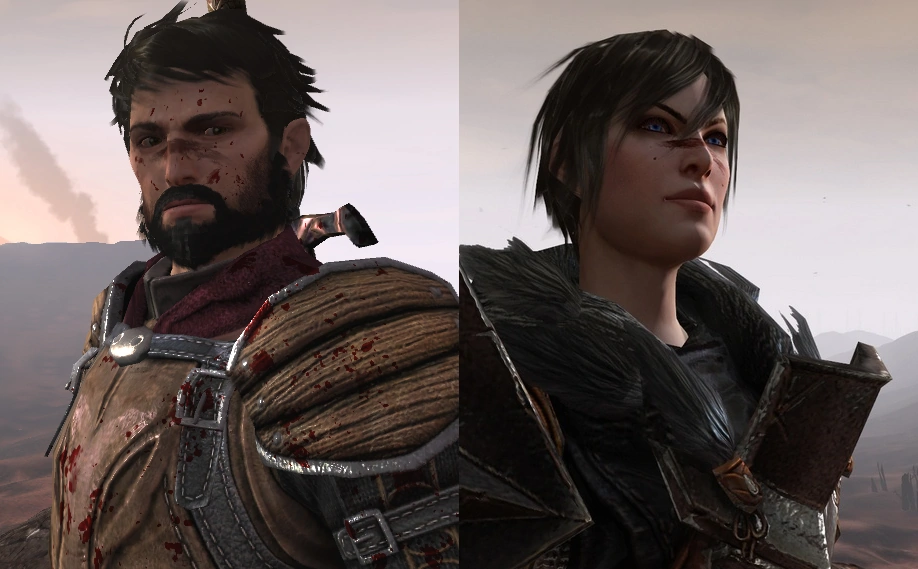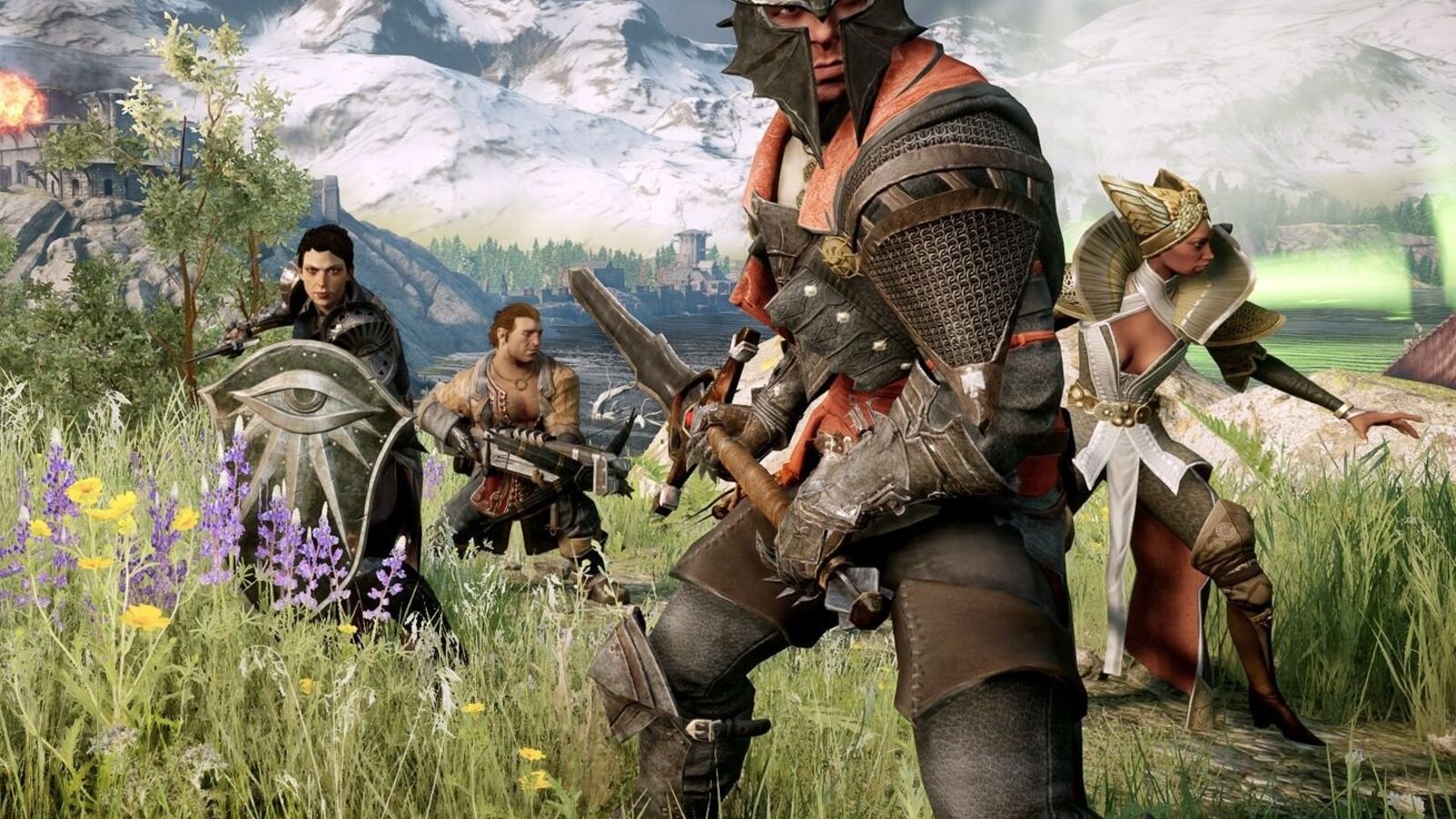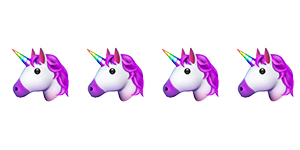Dragon Age is a three-part (so far) fantasy role-playing game series with remarkably excellent story-telling, dialogue, and acting. It’s an outstanding example of video gaming as an art form — giving popular fantasy novels a run for their money as far as world-building, character development, plot twists, and (yes) romance are concerned. It is also hands-down the bi-est video game series of all time, which is why I was shocked to discover that nobody had written a Unicorn Scale about it yet. Seriously, up your bi game, Bi.org gamers. Anyway as soon as I learned, I jumped at the opportunity to correct this massive oversight.
Before I dive in, you can check out this explanation of how the Unicorn Scale rating system works if you’re new to the column, or check our our Media entry on the entire series here.
What I Liked:
Each of the three games tells a complete tale of a different protagonist, and all three are very bi. The player can romance/seduce multiple male and female characters in all three games, regardless of the protagonist’s own gender. The first entry, Dragon Age: Origins (2009), follows the journey of a Grey Warden, part of a secretive, endangered order of elite soldiers. The second installment, Dragon Age II (2011), follows Hawke, a refugee from war who gets caught up in big-city political intrigue. And the third installment, Dragon Age: Inquisition (2014), follows the Inquisitor, an ordinary person turned religious leader by a miraculous fate.

The list of bi characters in the Dragon Age games includes not only the three main characters but also an impressive cast of co-stars: devoted bard Leliana, hedonistic assassin Zevran, troubled deserter Anders, escaped slave Fenris, pirate captain Isabela, blood mage Merrill, brilliant diplomat Josephine, and Qunari spy Iron Bull (who I must mention is voiced by none other than Freddy Prinze Jr). Notably: the series also has lots of straight and gay characters who can only be seduced by a protagonist of one or the other sex, which makes Dragon Age’s bi representation all the more realistic and meaningful. It also means that a bi player’s experience is further enriched by relationships with various monosexual co-stars (straight: Morrigan, Alistair, Sebastian, Casandra, Blackwall, Cullen, Solace; and gay: Dorian, Sera).

It would be one thing if the designers just lazily let the player romance everyone out of a simplistic desire to let them fulfill their own private fantasies. But for a series this rich, that would simply not do. These are fleshed-out, deep characters with complete backstories (and orientations) of their own. Like a good novel, they feel like real people — so the inclusion of bisexuality amounts to genuine representation in one of the most award-winning video game series of all-time. Add to that the fact that you can experience all three games from both a male and female perspective, opening up new romance avenues each time, and it’s no wonder fans jokingly (or seriously?) describe Dragon Age as akin to an interactive bi romance novel. Fortunately, there’s also a charming humor to the series’s approach to romance which keeps it from getting too … weird. It is still a video game after all. This scene exemplifies the vibe nicely (and, not incidentally, features no fewer than five bi characters).
What I Didn’t Like:
There’s little about which to complain regarding bi representation. Individual characters, were they the only bi rep in the series, could be called “problematic” for any number of reasons. Zevran’s slutty hedonism would be susceptible to accusations of reinforcing the stereotype that bi people are greedy or promiscuous, for example. Iron Bull’s polyamory and enthusiasm for BDSM, too, might be called out as reinforcing stereotypes about bi people — except that there’s also the very vanilla and monogamous Josephine. Lest we worry that the men are all portrayed as sex-crazed maniacs and the ladies as delicate normies, there’s the very kinky, non-monogamous Isabela for counterbalance. In short, all the characters in the series (including the straight and gay ones) are complex, imperfect humans (elves, dwarves, etc.). The bi characters receive the same treatment as the rest, which is what true equality is all about — no?
The Rating:
If I could, I’d give the Dragon Age series five unicorns (but alas four is the highest available). Of course, the truth is all three games are, like the characters represented within them, imperfect. In my opinion, the first game had the best story (which is saying something), the second had the best gameplay, and the third had the most engrossing world-building. But all three have close to perfect bi representation.
This is in large part due to the sophisticated dialogue trees in the games. Conversations are impressively interactive, which means that there can be little doubt about the precise motivations of characters. Some flat-out state that they are bi, such as when a player first inquires about romance with Zevran and he responds “Let me start by saying that my history is varied indeed. It has also not been restricted to women.” Iron Bull even implies that most (or all?) Qunari are bi. Sign me up for that culture, please!
Others are not as explicit about their bisexuality, but the complex dialogue (which differs depending upon the player character’s sex) leaves no doubt that these are characters who experience genuine attraction to men and women (sometimes the same way, sometimes in different ways). We bi folks know that this is exactly what bisexuality really feels like. Heck, there are even moments that hint at some characters’ places on the Kinsey Scale. I’d bet on Zevran being a 2, Iron Bull a 3, and Leliana a 4. Ok, this needs to be a Twitter poll now…
Anyway, I understand the fourth entry has been in development for something like a decade, and I’m not kidding when I say I seriously plan to put a long staycation on my calendar beginning the day it is to be released. Please let that be soon.
